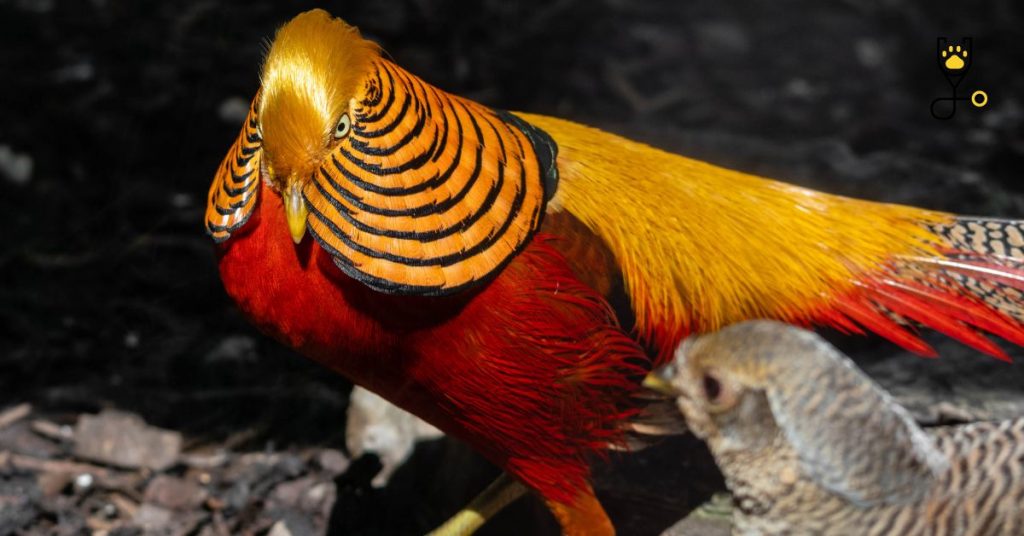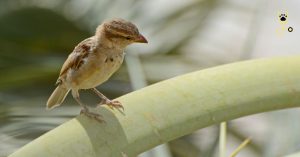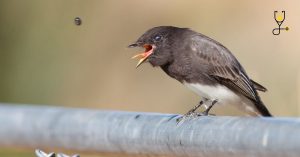Are you a bird owner concerned about your feathered friend? If so, you’re not alone in wanting to provide the best care possible. Unfortunately, feather loss is one of the problems that can frequently plague pet birds and unfortunately be difficult to diagnose and pinpoint. But understanding why it happens and being aware of its potential causes can help owners take proactive steps towards preventing it – or swiftly addressing it when it does occur. Read on for our comprehensive guide on the different reasons your bird may be experiencing feather loss, along with expert tips for how to restore their full plumage once again!
ReasonsYour Bird Experiencing Feather Loss
1. Vitamin Deficiencies
A diet lacking in certain essential vitamins, such as B-complex and biotin, can lead to a variety of health issues in your pet bird, including feather loss. Additionally, if your bird has a dietary intolerance or sensitivity (such as lactose) they may lack vital nutrients necessary for healthy feathers.
Learn more: All About Vitamin-Rich Foods for Pet Birds

2. Mites & Lice
While this creepy crawlies are usually too small to spot with the naked eye, they can cause serious problems if left unchecked – including feather loss! If you discover mites or lice on your bird’s body then it’s important to treat them right away with an appropriate insecticide designed specifically for birds.
3. Allergies
Just like humans, pet birds can suffer from allergies as well! Your bird may be experiencing feather loss due to an allergy to something in its environment, such as dust mites or a particular food item.

4. Hormonal Imbalances
Hormone imbalances can cause a variety of problems in your pet bird, including feather loss. This is especially true if your bird has been under stress for a long period of time and their hormones have become unbalanced as a result.
5. Molting
Molting is the natural process by which older feathers are replaced with new ones – but it’s also possible for birds to go through abnormally heavy molts. Excessive feather loss can be a sign of an underlying issue, and should be checked out by a vet.
6. Infections & Parasites
If your bird is experiencing feather loss due to infections or parasites then it’s important to address the problem quickly, as many of these are serious health risks if left untreated. The best way to do this is to bring them in for a check-up with the vet who can determine what type of infection or parasite is involved – and then prescribe the appropriate treatment.
7. Over-Preening & Plucking
If you notice that your bird is plucking its own feathers, this could be because they are suffering from stress or boredom. In some cases, it can also be a sign of an underlying medical issue, so it’s important to talk to your vet as soon as possible.
Also read: 10 Reasons Why Do Birds Pluck Their Feathers?
8. Avian Pox
Avian pox is a highly contagious virus that can cause birds to lose their feathers due to scabbing on the skin. If you suspect this might be what’s causing your bird’s feather loss, make sure to get them treated right away – and take steps to prevent spread by isolating them from other birds until they have been cleared of the virus.
9. Caged Bird Syndrome
Caged bird syndrome is a condition in which pet birds become depressed or bored due to being kept in captivity for too long without enough stimulation or company. This boredom can cause them to pluck out their feathers, so it’s important to ensure your bird gets plenty of exercise and interaction with other birds or people.
10. Bacterial Infections
Bacterial infections are also a potential cause of feather loss in pet birds. These can be treated with antibiotics – but as always, it’s best to consult with a vet before starting any sort of treatment.
11. Nutritional Deficiencies & Imbalances
A diet lacking in the right nutrients or an imbalance between the different nutrient types can lead to poor feather health and potentially even feather loss in pet birds. Consult with a vet or avian nutritionist to make sure your bird is getting all the vitamins, minerals, and other nutrients they need to stay healthy.
Also read: How A Cuttlebone Helps a Bird Groom Its Beak While Providing Calcium
Treatment for Feather Loss
Once you’ve identified the cause of your bird’s feather loss, it’s time to start treatment. This can range from providing them with a more balanced diet to treating any infections or parasites they may have. Depending on the underlying issue, your vet may also recommend supplements such as omega-3 fatty acids or probiotics.Depending on the cause, it may take a few weeks to several months for your bird’s feathers to start growing back – so it’s important to be patient and provide them with the best care possible during this time. With the right attention, you can help your pet bird regain their beautiful plumage! The key to preventing feather loss in birds is to provide them with a balanced diet and appropriate living conditions, as well as keeping an eye out for signs of infection or stress. Regular check-ups with the vet are also important so any issues can be addressed quickly.

Conclusion
Feather loss in birds can be caused by a range of issues, from nutritional deficiencies to infections and parasites. It’s important to identify the root cause of any feather loss so it can be treated appropriately. With the right care and attention, you can help your pet bird regain their beautiful feathers in no time!
Also read: 10 Steps to take if your Bird Breaks a Blood Feather
FAQs
Q: What are the most common causes of feather loss in birds?
A: The most common causes of feather loss in birds include nutritional deficiencies, infections or parasites, over-preening or plucking, avian pox, caged bird syndrome, and bacterial infections.
Q: How do I know if my bird’s feather loss is caused by a medical issue?
A: If you suspect your bird’s feather loss may be due to an underlying medical issue, it’s best to consult with a vet as soon as possible. Your vet can examine your bird and help identify the cause of their feather loss so it can be treated appropriately.
Q: How long does it take for feathers to grow back?
A: The amount of time it takes for feathers to grow back depends on the underlying cause. In some cases, it may only take a few weeks – but in others, it could take several months or longer. It’s important to be patient and provide your bird with the best care possible during this time.
Q: How can I prevent feather loss in my pet bird?
A: The key to preventing feather loss in birds is to provide them with a balanced diet and appropriate living conditions, as well as keeping an eye out for signs of infection or stress. Regular check-ups with the vet are also important so any issues can be addressed quickly.
Q: What should I do if my bird is plucking its feathers?
A: If you suspect your bird may be plucking its feathers, it’s important to figure out why they are doing so. This could be due to stress, boredom, or other underlying issues. Make sure your bird gets plenty of exercise and interaction with other birds
Q: Is there anything I can do to help my bird regrow its feathers?
A: Depending on the underlying cause, your vet may recommend supplements such as omega-3 fatty acids or probiotics to help with feather growth. You should also provide them with a balanced diet and appropriate living conditions to promote healthy feather growth.








